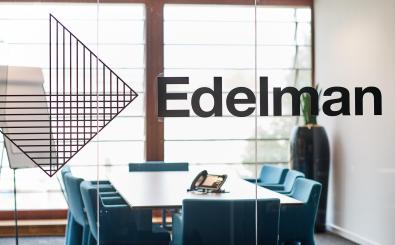How can you tell the stock market is in vogue. You know this is the case when the magazine supplement of a local newspaper, where otherwise essential life questions such as "How to photograph your dog" or "The best recipes for the barbecue season" are dealt with, featured a story dealing with "the most important questions and answers about the stock market boom" entitled "The new stock market investors". Even among friends and acquaintances, the topic of investment is suddenly almost as hot as the question of how to get a Biontech vaccination. For example, an acquaintance recently proudly announced in an evening Zoom call that he had outperformed the S&P 500 index by double-digit percentage points with his portfolio. Crypto investments would also certainly be the topic of conversation at any party, if there were any.
Favourite savings account
The enthusiasm for investing is gratifying. After all, shares were considered rather exotic in Germany for a long time. Checking accounts, savings books, life insurance policies and home savings contracts have traditionally been the preferred forms of investment. In a Statista survey conducted in June 2021, around 43 per cent of Germans surveyed said they currently use a savings book or savings deposits to invest their money. Pension and endowment life insurance policies were used by around 30 per cent of Germans in spring 2021. In second-to-last place in the top 10 of Germans' most popular financial investments were shares, at around 17 per cent. "Germans are saving a lot, but wrongly," Handelsblatt editor-in-chief Sebastian Matthes put it succinctly in an editorial in mid-May. The years-long stock market bull run has passed many savers by, and this has had a serious impact on social prosperity and retirement provision.
Stock market boom
Will the Coronavirus pandemic change this? Apparently, many people now have time to spend on capital markets topics and are apparently unwilling to pay their financial institutions money on sight deposits (I am deliberately not using the euphemism "custody fees" here). Nonetheless, according to the Deutsches Aktieninstitut, just under 12.4 million Germans are currently invested in equities. Almost as many as during the stock market boom at the turn of the millennium.
I am reminded of exactly that time more often now. At that time, even the Bild newspaper made a big deal about "Winning stocks on the Neuer Markt". And the question of how to get hold of the coveted shares of Deutsche Telekom on their last IPO was discussed with similar passion as the current tips & tricks about Spacs, which are spilling over from the USA to European stock exchanges. The hype was followed by a crash and disillusionment. With lasting consequences. Today, the T-Share is still hovering around 17 euros. As a reminder, many investors had paid 66.50 euros for the share when the third capital increase took place 21 years earlier. Other hype shares, such as Intershop or EM.TV, have disappeared from the price list altogether. The financial damage was enormous for many investors. But even worse was the damage to the tender seedling of German stock culture. Many people turned their backs on the stock market and never came back. The only thing that remained was the daily stock market show on the German TV channel "ARD" just before the daily news.
History repeating
Is the 2000 tech-bubble-desaster currently in the process of repeating itself? A market correction seems quite conceivable in view of looming inflation concerns and frothy valuations. It would also be perfectly normal. The question is whether many of the new stock market players will also accept that the stock market is not a one-way street. The financial industry also has a communication responsibility here, reminding people of the risks of investing capital. However, it does not look as if parts of the industry are living up to this. Neo-brokers are currently aggressively advertising their offer to trade from anywhere with a smartphone at favourable conditions. "Handelujah" exults, for example, a Munich-based online broker in its current campaign. (Handeln means trading in German, and the word is mixed with the religious interjection Hallelujah). But the offer of "trading unlimited shares and ETFs for 2.99 euros a month" does not play to the idea of responsible, long-term investing. Also, the user interface of some trading apps, such as the US giant Robin-Hood and its German counterpart, Trade Republic, is also rather playful: one "swipe" up, and the deal is executed. This tempts users to make quick trades with real money. There is nothing wrong with that in principle, as long as it is acknowledged for what it is – a gambling transaction. These type of transactions have nothing to do with serious long-term investing. And my concern is, with the gamification of trading, the old claim of Zewa, a producer of cleaning material, could ultimately prove true for the tenderly germinating seedling of German stock culture: everything is gone with a wipe.
On the other hand, it would make sense to educate people more about how to invest responsibly. The core message is that setbacks in the stock markets are possible, even likely, but broad diversification and long-term investment in shares clearly beat most other forms of savings or capital investment. All the better, then, if this is now easily possible via a smartphone, provided it does not encourage mass, reckless day trading.


